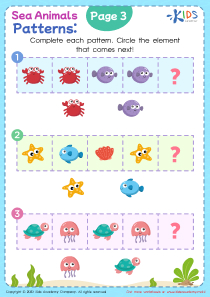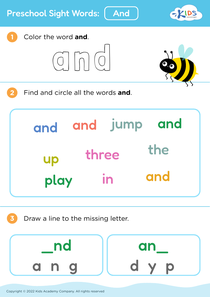Color recognition Preschool Reading Fiction Worksheets
5 filtered results
-
From - To
Discover engaging Color Recognition Preschool Reading Fiction Worksheets that combine the excitement of storytelling with vibrant color activities. Designed for young learners, these worksheets enhance reading skills while teaching essential color concepts through fun and interactive fiction stories. Each worksheet captivates children's imagination and reinforces their ability to identify and name colors correctly. Perfect for classroom or at-home use, these resources support early childhood education mastery, promoting both literacy and cognitive development. Enhance your child's learning journey by incorporating these beautifully crafted worksheets, and watch as they delight in the magic of reading and color discovery.
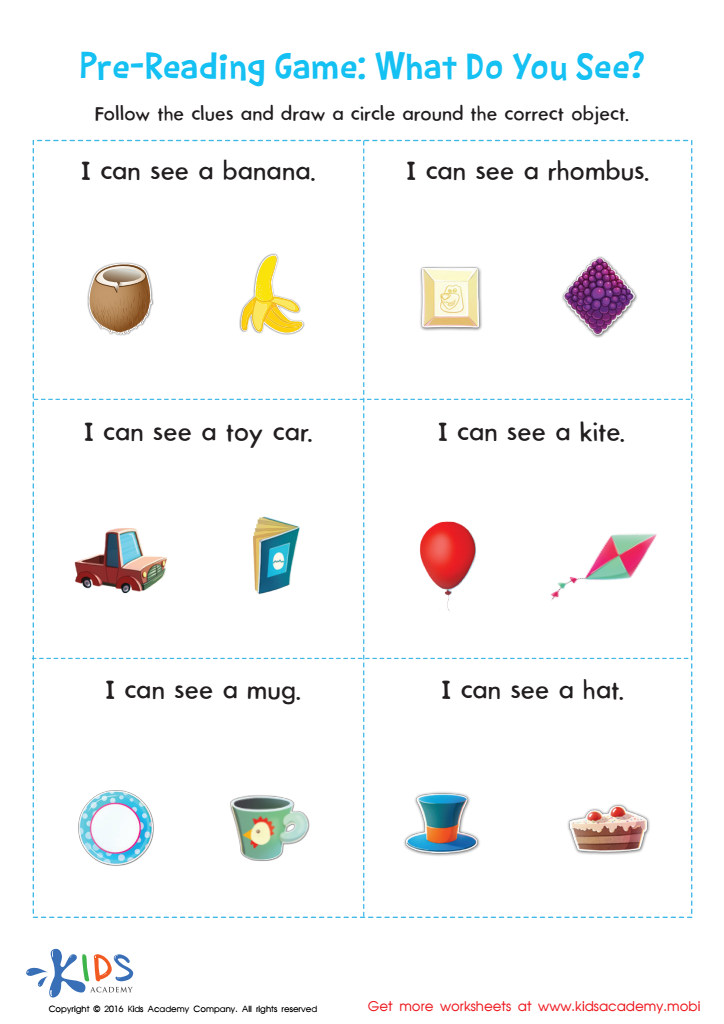

Pre–reading Worksheet: What Do You See?
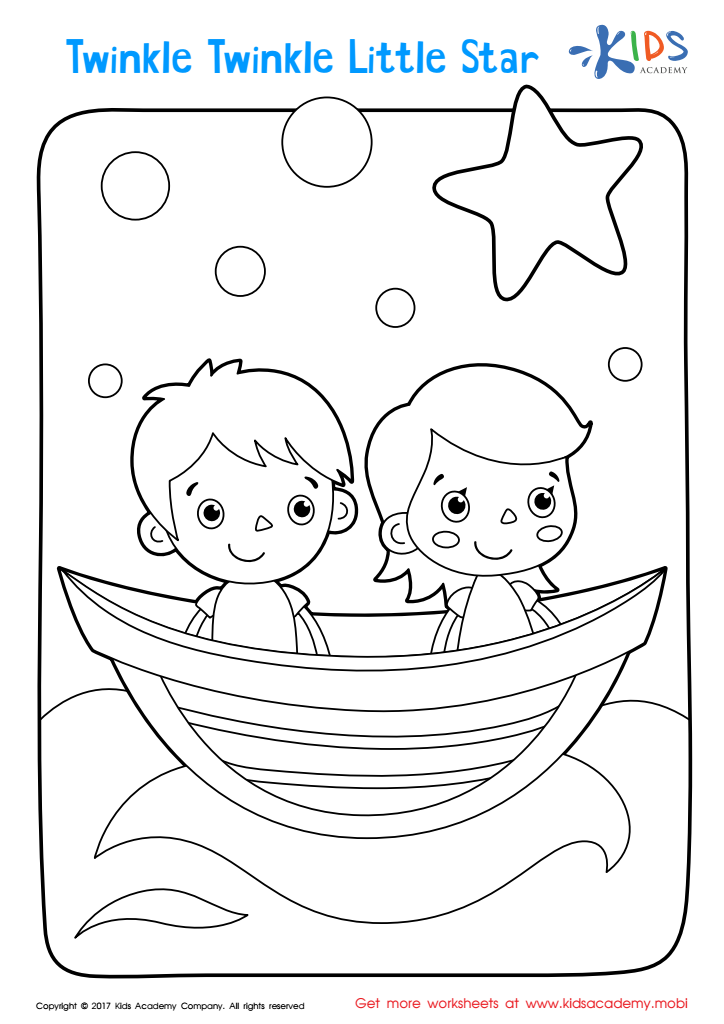

Twinkle Twinkle Little Star Coloring Page
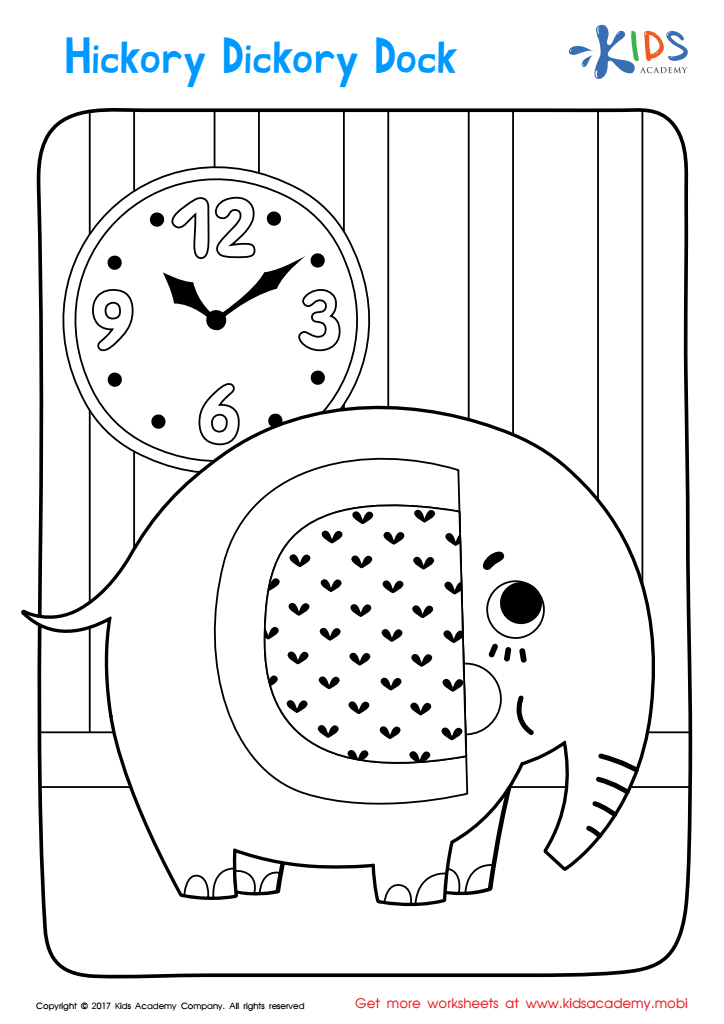

Hickory Dickory Dock Coloring Page
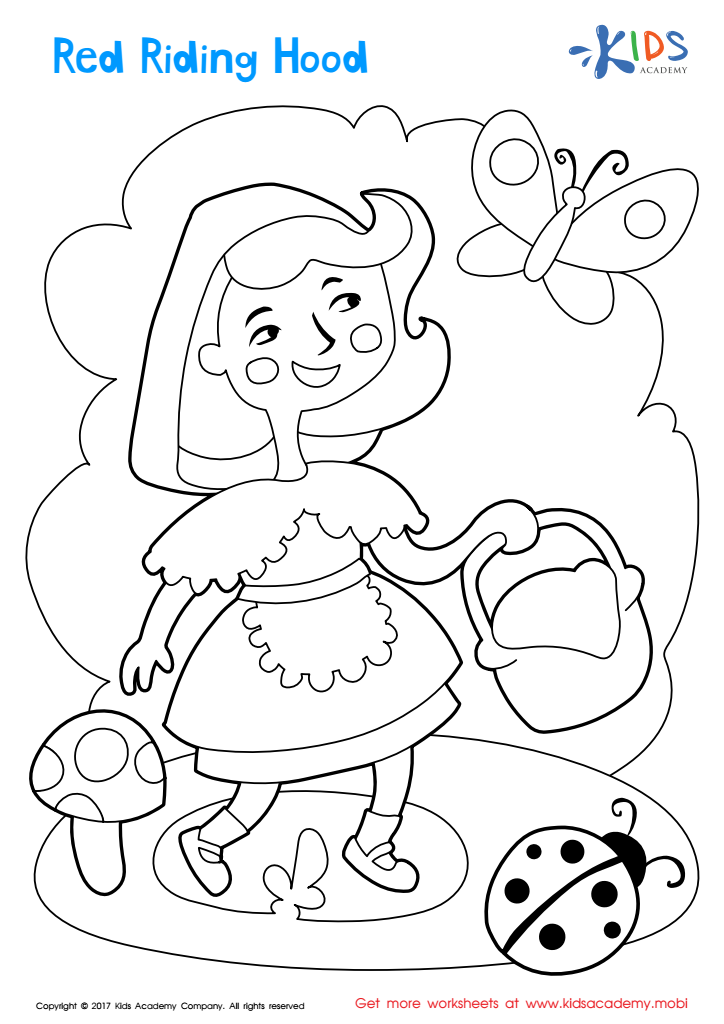

Red Riding Hood Coloring Page
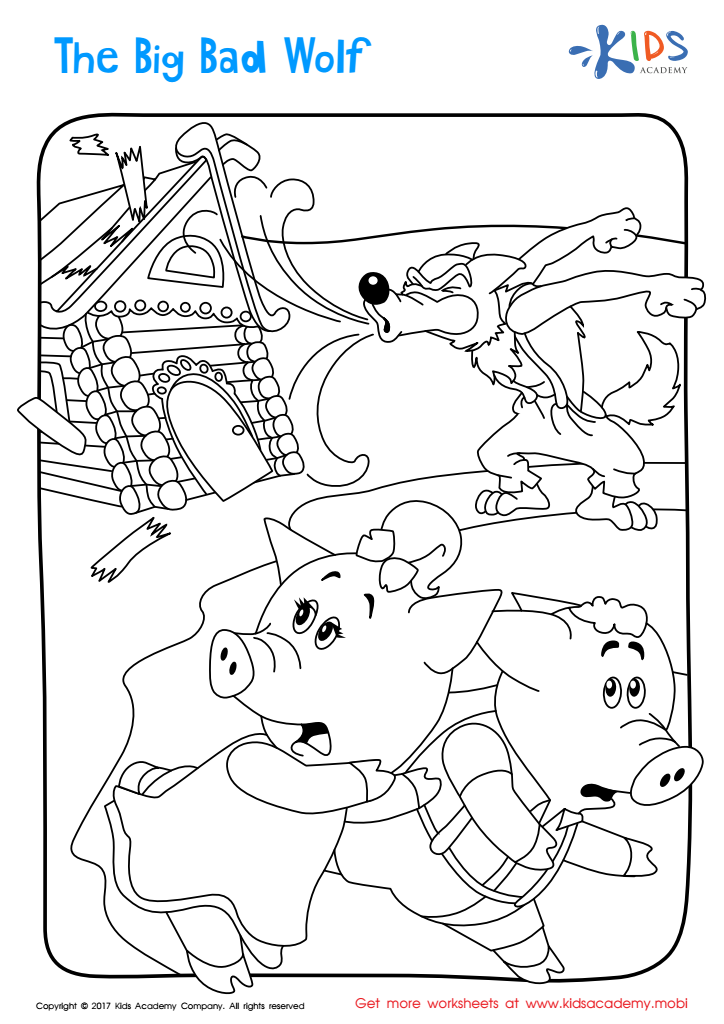

Big Bad Wolf Printable Coloring Page
Color recognition, preschool reading, and familiarity with fiction are foundational aspects of early childhood development that parents and teachers should prioritize due to their significant benefits for young learners.
Firstly, color recognition is crucial for cognitive development. It not only aids in processing visual information but also enhances memory and sorting skills. Recognizing and differentiating colors have practical daily applications, such as identifying objects, understanding traffic lights, and matching clothing items.
Preschool reading is equally vital; early exposure to phonics, vocabulary, and narrative structures fosters essential literacy skills. Reading aloud to children and involving them in storytelling stimulates language development, predictive skills, and comprehension. Research shows that children who are read to from an early age often develop a love for reading, which is instrumental in their academic success.
Engagement with fiction introduces children to new worlds and diverse perspectives, nurturing imagination and creativity. Fiction empowers children to envision scenarios, empathize with characters, and understand complex emotional and social dynamics. In addition, stories can provide subtle moral lessons and problem-solving techniques.
Overall, parents’ and teachers’ active involvement in promoting these areas can immensely impact children’s early developmental phases, providing a solid foundation for their educational journey and fostering lifelong curiosity and learning.
 Assign to My Students
Assign to My Students








